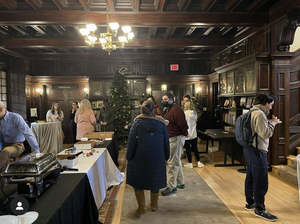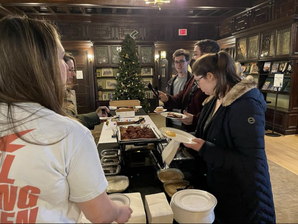Holiday Celebrations
As a Jesuit institution, Loyola welcomes a diverse religious population including a variety of the Christian denominations, Judaism, Islam, Buddhism, and Hinduism. Campus Ministry celebrates (and supports student organizations in celebrating) different Holiday traditions around the year to honor and celebrate a variety of religious traditions, as well as educate the community in these beautiful and spiritually-rich festivals and celebrations.
Holi
Holi, also known as the Festival of Colors, is a Hindu festival celebrating the eternal and divine love of the God Radha and Krishna. With this colorful festival in the Spring, Hindus celebrate the triumph of bursting the beauty of spring through the darkness of winter.


Sukkot
Sukkot, celebrated in September/October, is one of three major Biblically-based festivals in Judaism and is both an agricultural festival of thanksgiving and a commemoration of the forty-year period during which children of Israel wandered in the desert after leaving slavery in Egypt, living in temporary shelters as they traveled. The Sukkah is a gathering place, a place where it is traditional to welcome guests and enjoy spending time together.
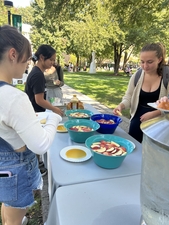
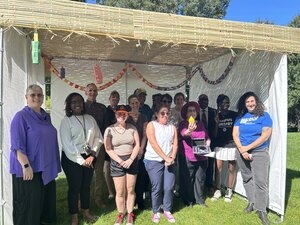
Diwali
Diwali is the five-day Festival of Lights, usually celebrated in October/November, by millions of Hindus, Sikhs and Jains across the world. Diwali, which for some also coincides with harvest and new year celebrations, is a festival of new beginnings and the triumph of good over evil and light over darkness.

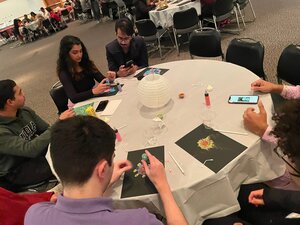
Hanukkah
Hanukkah, also know as The Festival of Lights, is a Jewish Festival celebrated in December that commemorates the Maccabean re-dedication of the Jerusalem Temple in 165-164 B.C.E. Each day of the festival a candle is lit from the menorah, which is a candelabra with eight branches plus a holder for the shammash ("servant") candle that is used to light the other eight candles. Thanks are offered to God and a blessing is said for each candle lit.
